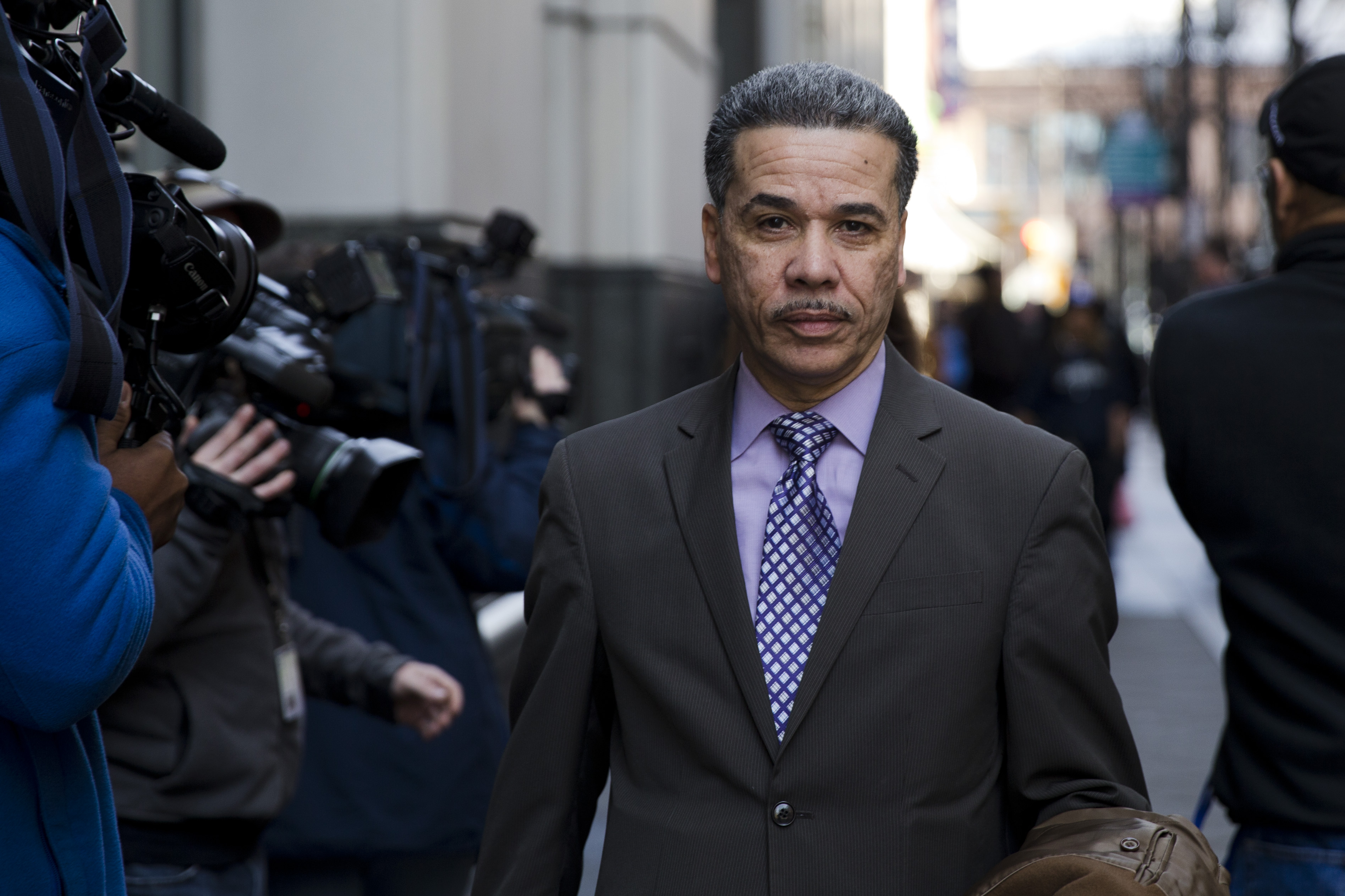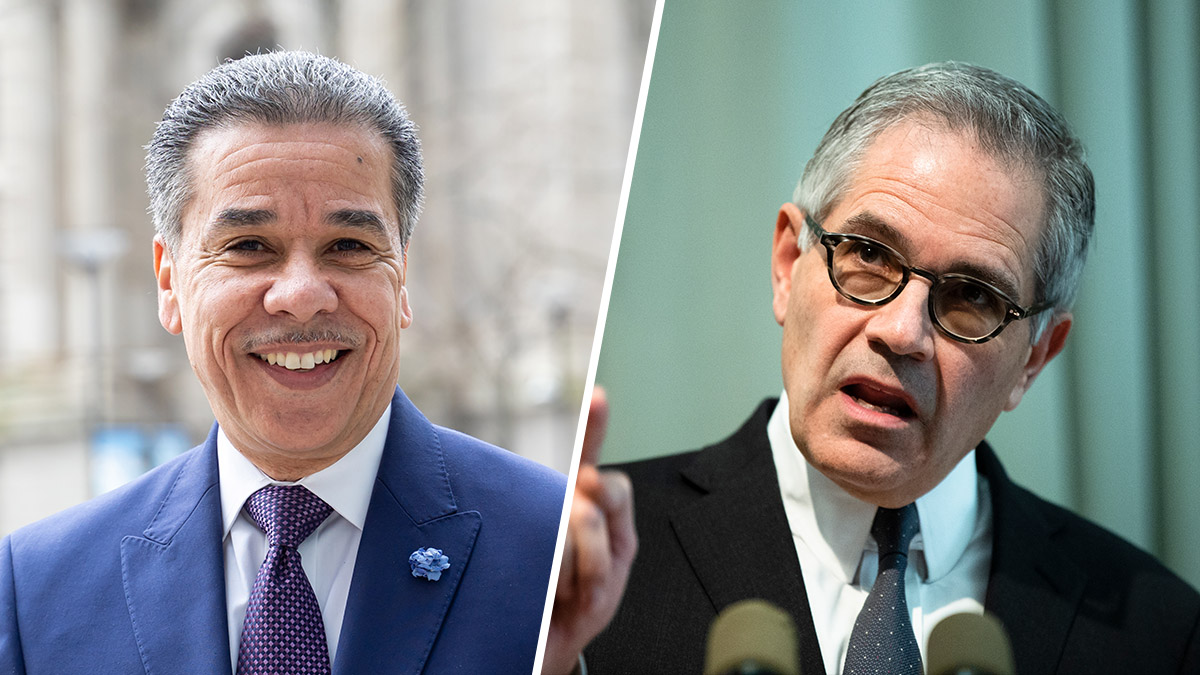Philadelphia District Attorney Larry Krasner has rattled the criminal justice system in the three-plus years he's been the city's top prosecutor, but the reforms he put in place are just the beginning, he says.
And he doesn't plan on going anywhere.
"I used to defend a lot of protesters. It was my professional hobby. I did it for 25 years. In order to do it at jury trials, I had to really study the history of these movements and their philosophy so I could stand up in front of a jury and say, 'Look, yeah, they blocked the street. You don't like your street blocked. But here's the news. So did the suffragettes. And that's why you can vote and that's why you're sitting on the jury if you're a woman,'" Krasner said in an interview with NBC10. "And one of the things I drew from that is social movements take a long time. They usually take about 30 years to win a huge battle. I think we are in that cycle."
Krasner has not disappointed most of his progressive supporters. He led an overhaul of Philadelphia's cash bail system, supported decriminalization of certain minor crimes, and has vigorously pushed for better policing and law enforcement acountability.
Get top local stories in Philly delivered to you every morning. Sign up for NBC Philadelphia's News Headlines newsletter.
He has also enraged opponents like the city police union and conservative law enforcement officials like the former U.S. attorney for Philadelphia who was appointed by President Donald Trump. The federal prosecutor, who resigned after Trump lost re-election, often criticized Krasner as being too lenient on criminals.
His challenger in the May 18 Democratic primary, Carlos Vega, believes Krasner has taken his reforms too far and that the current DA's policies have made the city more dangerous. Vega served 35 years as a prosecutor in the Philadelphia DA's office before he was fired when Krasner took office in 2018.
The candidates will make their case to Philadelphia voters on live television and radio May 5 during the lone debate between the two candidates ahead of the primary.
EDITOR'S NOTE: The debate will be broadcast live at 7 p.m. and moderated by NBC10 and KYW Newsradio reporters. It will also air live on NBC10.com and the NBC10 app as well as NBC10's Roku TV and Apple TV apps. It can be heard live on KYW Newsradio at 103.9 FM and 1060 AM.
Vega believes he's the moderate approach needed as Philadelphia grapples with a gun violence crisis unrivaled in recent decades.
"I'm that third third wave. I'm that person who believes that we need reform and we need safety. We deserve both," Vega, who grew up in the South Bronx of New York City, told NBC10 in an interview last week. "I'm that third choice, which is to say, I'm going to bring reform because I hear you, I've lived it, but I need to make you safe because I've lived it."
For Krasner, it's not the criticism from others that he has found hardest to confront in his first term as an elected official. It's his own personality.
"I didn't realize what it was to go from being, basically, an unknown private citizen to being someone who had a platform. And I have learned over time maybe not to be quite as loud, not quite as direct," Krasner said. "You know, on the one hand, you want to be transparent, you want to be direct. But on the other hand, you have to realize that somebody gave you a megaphone you never had before."
Here is a look at what Krasner thinks about his successes in the first term, his opponent's history in the DA's office, and how holding police officers more accountable will eventually lead to greater respect for cops by all citizens.
On Police: 'We Have Had a Culture That Attracted Bullies'
Since the civil unrest of 2020 over George Floyd's murder at the hands of former Minneapolis police Officer Derek Chauvin, being a cop has become harder. It's also become more difficult to find new recruits.
Krasner, who has long called for stronger police accountability, said he welcomes the challenge facing the Philadelphia police department.
"It's probably healthy right now that it's hard to recruit, because what it actually reflects is that in certain cities, we have had a culture that attracted bullies. Because they thought they could, you know, drive 150 miles an hour with the siren on and pull their gun whenever they wanted, and shoot it whenever they wanted," he said. "If we're not attracting bullies anymore, then that's really good. And it might mean the city has got to do some things. Maybe they have to require a higher level of education. Maybe they have to pay more to get a smaller number of more qualified people. Maybe that's a better way to police."
On His Opponent, Carlos Vega
Krasner does not sugarcoat his feeling about Vega, who was among a wave of longtime assistant district attorneys let go by Krasner upon his taking office in 2018.
"Let me be direct. Mr. Vega seldom crosses paths with the truth," he said when asked about Vega's criticism of the way Krasner has handled prosecutions of police officers. "I always keep two pens when Carlos is talking because I usually run out of ink on how many untruths he tells."
Vega believes Krasner takes a lot of credit for being tough on officers accused of criminal wrongdoing, but says the current DA's tough talk has not translated into putting a single cop accused of a crime in jail.
"What he's excluding from these magic numbers is the fact that, yes, some of these cases are being thrown out by judges and we then we charge them again," Krasner said, noting that his office has charged 51 police officers with various crimes. One high-profile case of a beating caught on tape involving a police supervisor during the 2020 civil unrest was initially thrown out by a judge. Krasner's office refiled charges against the officer.
"These cases are not all Derek Chauvin, with a knee on the neck of someone. They they run the gamut for all kinds of things that are very, very serious or not nearly as serious," Krasner said. "And we do not want to treat police differently or unfairly."
His office did charge a police officer with murder for the first time in decades in 2018. That case is expected to go to trial later this year.
EDITOR'S NOTE: To read NBC10's profile on candidate Carlos Vega, CLICK HERE.
On Bail Reform and Other Progressive Criminal Justice Changes
Krasner's approach to bail reform has revolved around "reducing the number of broke people who end up in custody on low-level cases," he says.
He described the results so far as "excellent." The jail population in Philadelphia shows those results. Even before the COVID-19 pandemic altered the criminal justice center in ways that affected the number of people jailed in the city, the number of people held in city jails dropped considerably during the first couple years of Krasner's term.
As of May 2, fewer than 4,500 people are in jails awaiting trial. That is down about 44% since 2015.
The system of cash bail in Philadelphia forces defendants to pay a certain amount to avoid being held in a city jail while awaiting trial. Under previous DAs, prosecutors would request cash bail and city bail commissioners would either agree with that number or set it at another amount. Critics of cash bail said it put an uneven burden on poor people.
Krasner's office has not completely eliminated cash bail, but his assistant district attorneys very rarely request it now in many cases. Some of the city's most fervent anti-bail advocates, however, say Krasner still hasn't gone far enough.
The DA's office now currently requests bail of $999,999 in certain cases involving gun violence or other serious accusations. Krasner defends bail in certain cases, and says the $999,9999 is humane for one particular reason: anyone with $1 million or higher bail is assigned to solitary confinement at city jail.
Krasner said he hopes Pennsylvania's state lawmakers will eventually pass legislation like other states have in recent years that implements a "hold them or release them" system, essentially abolishing bail. He blames bail commissioners for setting bail that doesn't match what his office or the crime alleged in a case is asking for.
"That's what we need. As long as they keep giving money bail to judges, as long as municipalities keep sucking off a lot of that money bail for their own coffers, as long as there's a private Dog the Bounty Hunter industry that gives political donations and lobbies our legislators, we're screwed. We're never going to really get there," Krasner said.
He blames the system for failing the city as Philadelphia goes through the gun violence crisis.
The city is in the midst of a gun violence crisis unparalleled in recent decades. Last year, amid the COVID-19 pandemic, 499 people were killed in Philadelphia, the second highest total of the last 60 years. In 2021, homicides are on pace to reach the highest total ever. Shootings are also very high, according to police department data.
Philadelphia has seen a large increase in homicides and shootings since the start of 2020, but so have many other American cities.
Homicides are up 30%, 40%, even 50% year over year in places like Chicago, Oklahoma City, New York City, Los Angeles and Phoenix, to name just of a few. Experts believe the pandemic played a large part in a conflux of problems that created historically high homicide totals across the country.
Krasner's opponents say the DA's office lets too many suspects back onto city streets after they have been charged.
"It is my opinion that we are getting lousy results when it comes to properly high bail for extremely serious cases. We have been less successful," Krasner said. "But let us be clear, I don't set bail. All I can do is argue for it. The judiciary is independent, even if that judiciary in this particular instance, at the bail commissioner level, is politically appointed, not elected."
Meanwhile, Krasner has defended other reforms, including not seeking the death penalty and keeping juvenile defendants out of the adult criminal justice system.
In only 2% of cases involving under-age defendants, the DA's office under Krasner has sought adult charges, according to a recently published report by news site Billy Penn.
"Criminal justice reform overlaps with many other extremely important issues around racial justice and so on. I think we're about 10 or 11 years in. I think we got about 19 or 20 to go," Krasner said, referring to his belief that social justice movements take aout 30 years. "I don't think I'll be there all 19 or 20 years, put it that way. I think that people we're hiring now or that we hired in the last few years are the ones who are going to who are going to be able to finish that cycle, thank goodness. But, you know, I am prepared right now to run one more time, and that's what I'm doing. And I won't even be making a decision on whether I would run again probably for a few years."
HOW TO VOTE IN MAY 18 PRIMARY: Registered Democrats in Philadelphia will be able to cast votes in the race between Vega and Krasner. The deadline to register to vote or to change your party designation is 5 p.m. on May 3. Voter applicants can use Pennsylvania's online voter registration system, and traditional paper voter registration forms must be received in county voter registration offices by close of business on May 3.



